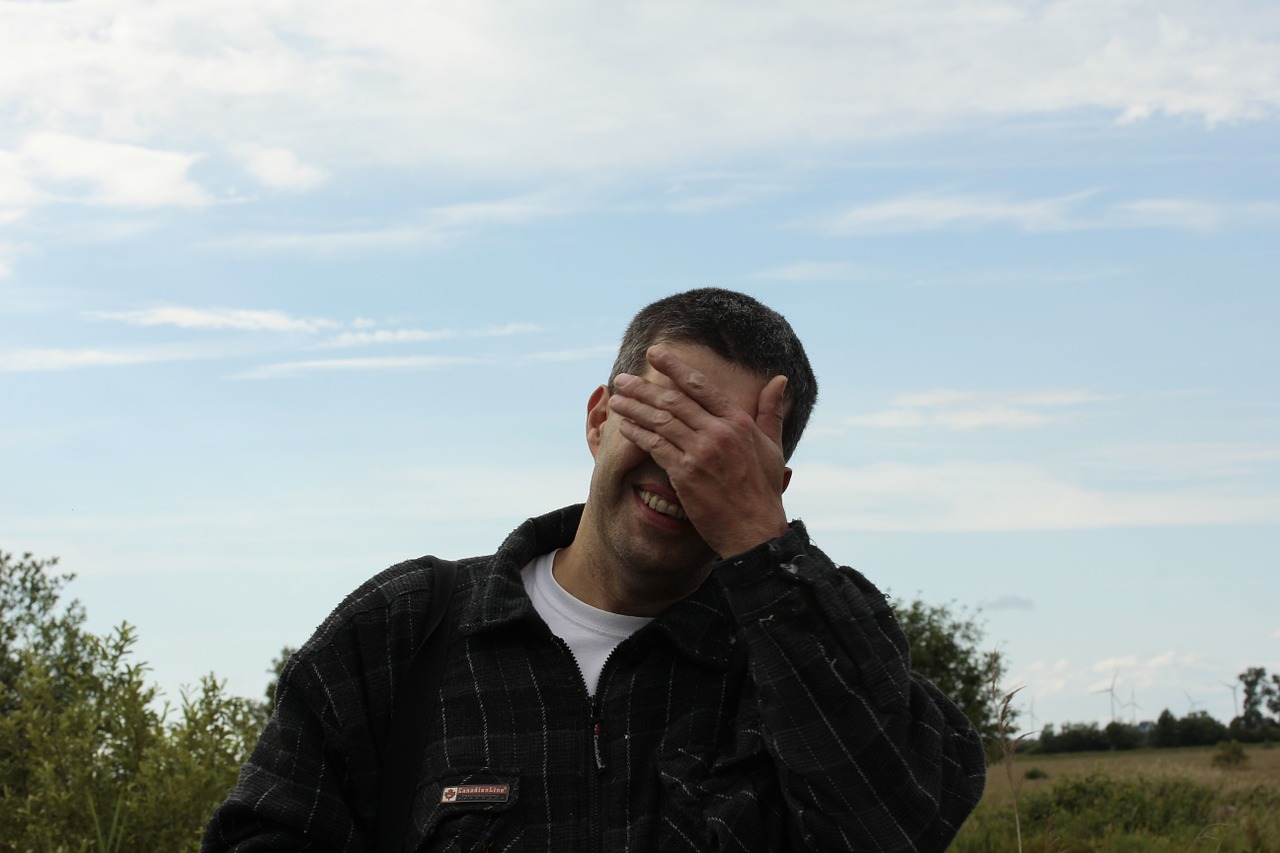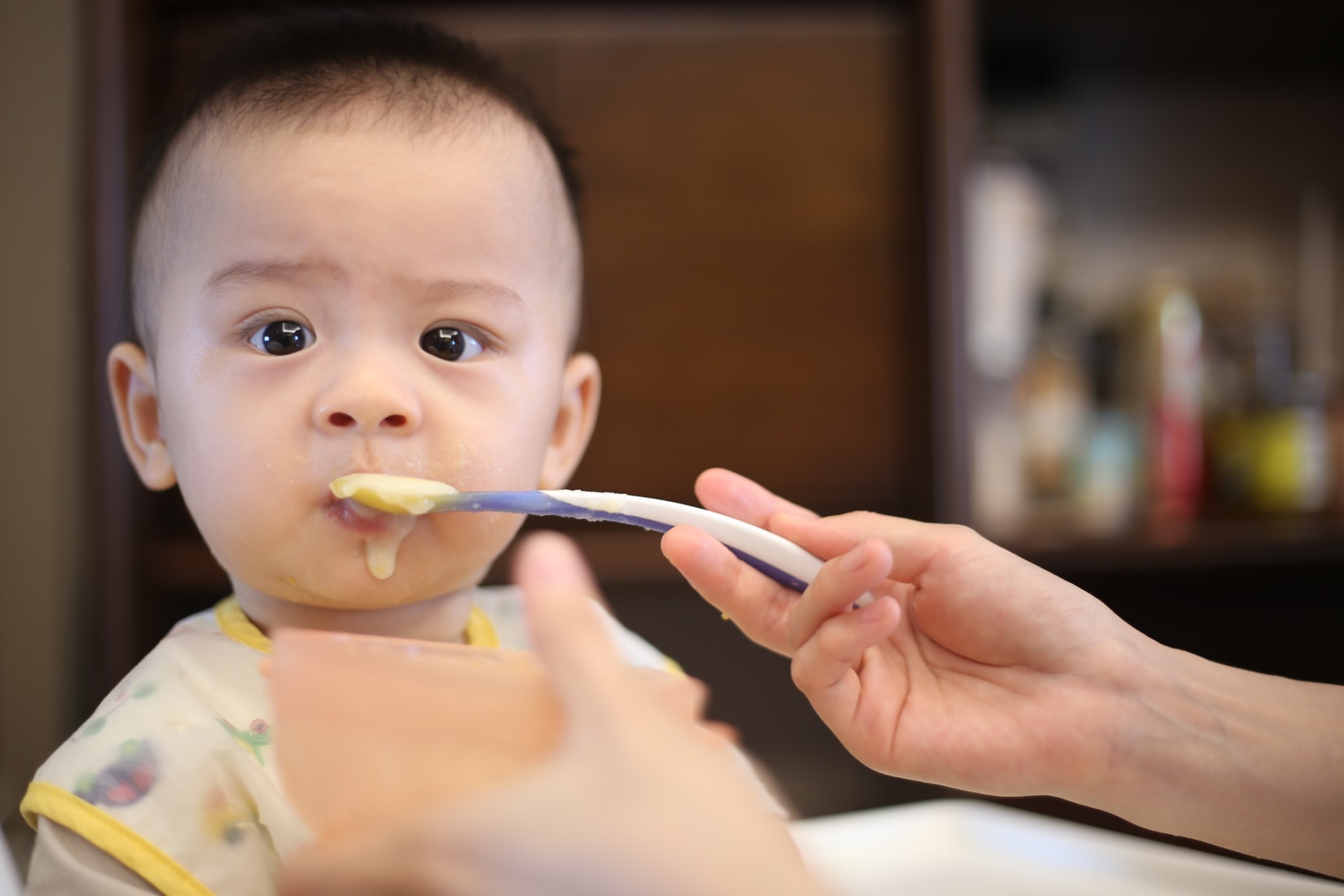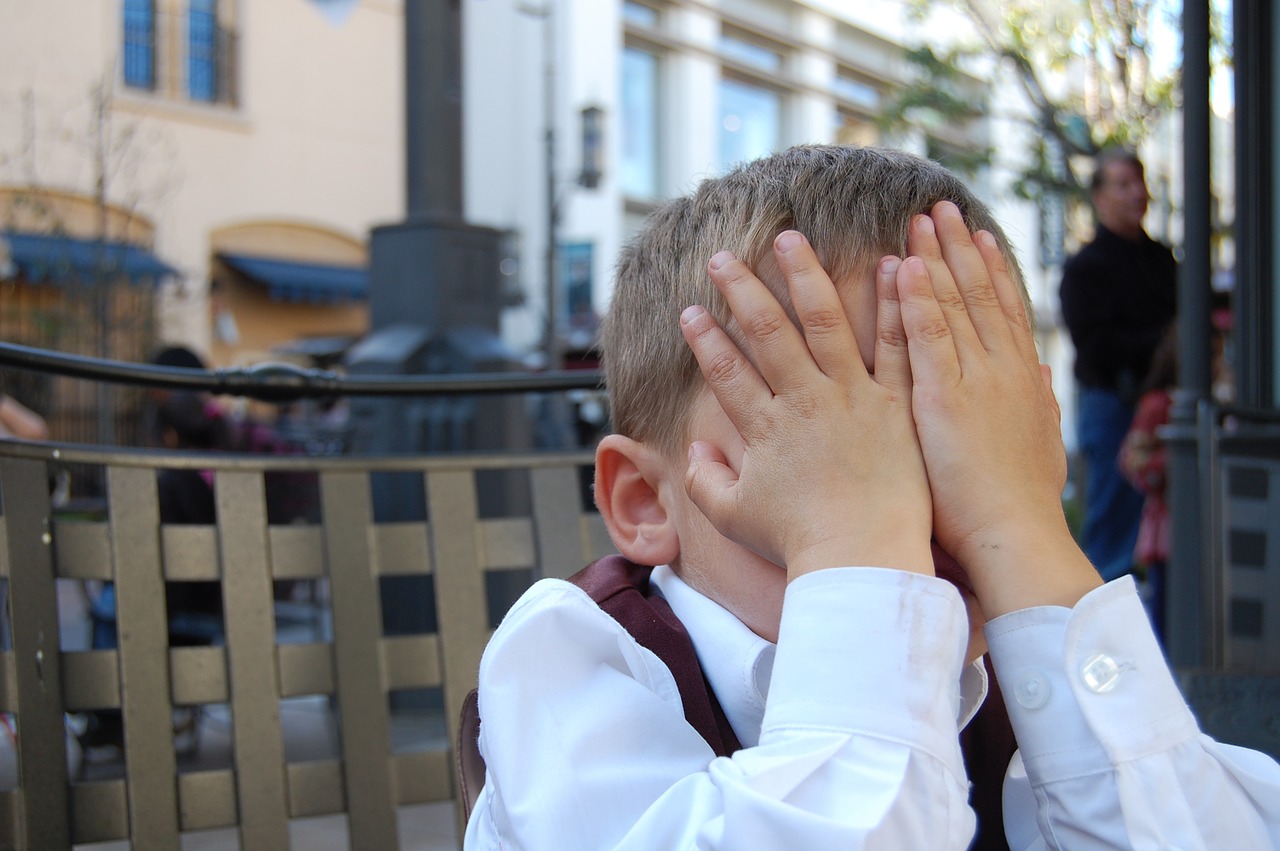It was the end of summer, beginning of fall. The school year has just started. I remember walking back home from my after school club. I was 11 at the time. I remember I was smiling, I do not remember why. My head was in the clouds, daydreaming, and my eyes were scanning the pavement in-front of me. Not really paying attention to my surroundings. I was enjoying the moment, and then BOOM. I walked into a street light post. I was so caught up with myself that I didn’t even notice it was there.
You can imagine the embarrassment I felt at that moment. I remember it till this very day. I also remember scanning the area to make sure no one noticed. Luckily not many people were around, beside one kid I knew from the neighborhood. He wouldn’t say anything, but even if he would, no big deal. As I realized that, my cheeks slowly returned to their original color. The embarrassing moment had passed, I’m in the clear.
My kids are at the same age today as I was when I walked into that post. As I type these words, I’m aware of how funny it sounds but my cheeks still blush. Which leads me to question, what if it were to happen today — in the days of social media — YouTube, Facebook, Snapchat, Instagram… ? Most likely that kid would have record and shared it on-line, and I would be forever reliving it. Every google search will list it, just after my articles and my accomplishments, there it would be, my America’s funniest home videos moment, and the worst part is that I would have had no control over it. It would have been there forever and I could not take it down. Luckily I was born at the previous generation, before it could have happened.
Fast forward to today where our entire lives are online, for better and for worse. Parents and kids posting almost everything. And it shouldn’t come as a surprise when I share of children suing their parents for posting baby photos of them on social media. One of them pleaded “They knew no shame and no limit — and didn’t care whether it was a picture of me sitting on the toilet or lying naked in my cot — every stage was photographed and then made public..”. Yes, as parents we get excited and proud, and we want to share our joy with the world. But not every joyous moment is appropriate to be online forever. 13 years old Darren Randall said “I had no say in my image being on the internet and now that I’m getting older these old pictures are ruining my reputation,”
Reputation management is a term I got to learn when I was in university. A PR term, referring to the process of managing public perception. Online, at the social media space it refers to influencing and controlling an individual’s reputation. For us and our children, it’s managing our online personas. Any 11 years old will explain to you why it’s important and how to make sure you maintain it.
Managing your online reputation
I gathered some of the tips to help you (and your child) best manage theirs (and yours) online reputation.
Stop before you post
The average parent shares almost 1,500 photos (mostly on Facebook) of a children before they turn 5-years-old, according to Parent Zone. Consider your posts about your children, and think about it from a long term prospective — would you want their college application committee to see them? How about their future boss? Their date? If the answer to one of these questions NO then you got the answer — DO NOT post it.
Consent is key
Rule of thumb when it comes to others, especially our kids, ask them (or their parents) before you post the photo. If they do not say yes, it means no. If you cannot get an answer, assume it’s a no. I generally don’t post photos of my kids, if I really want to share a special moment, I ask for their permission. I advise you to do the same. Avoid posting photos of your children online unless specifically received their consent to do so.
Tag, you’re it!
Sometimes, we have no control on others posting our photos and tagging us. Most common platform is obviously social media, but Google is there too. There are limitations to what we can do in regards to others sharing photos of us or our children, but there are still some options to prevent that.
On Facebook, you can set it so they system will ask for your approval on every tag, if you said no, you will not be tagged (the photo will still be there). On Instagram you can choose if a photo you are tagged in will appear on your timeline, again like Facebook, the photo will remain online but not linked to you.
As for Google, I would like to experiment with you first. Please open Google in a new tab and type your child’s name (or yourself). Look at the results on the images tab. I’m sure you didn’t post all these photos. That’s indexing. When we want to not to have Google associate us with those photos we need to get it de-indexed.
For those who want to understand more about indexing: Your images are being indexed, meaning put in a huge database (index). That huge database is where Google store information about every web page it has analyzed, including its photos. The process of this analysis is called “crawling”, you may have heard this word. If a website hasn’t been crawled and is not presented in the index, it simply doesn’t exist to the search engine. Any photo you post most likely end up indexed. When you google the names of the people in the photo, you most likely will have it pop up on the list of results. To de-index, you need to jump through hoops (and most likely fail).
My best advice, avoid posting it if one day you may want to take it down.

Let’s pledge for their better online reputation
Let’s pledge to help
As a parent, my goal is to give my kids the best life I can possibly can. I am sure we share that same goal. In this day and age it means helping maintain their digital reputation in addition to other parental responsibilities. I hope you can join me and pledge to follow the above rules. Allowing our kids to be kids, knowing that their experiences (even the embarrassing ones) will remain private for them to decide in the future whom to share it with.
Thank you.



